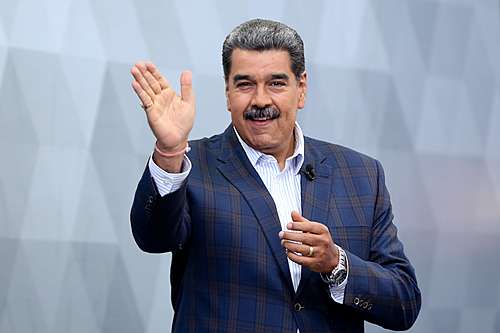
The president of Venezuela, Nicolás Maduro, said that the country made a proposal to join the BRICS, a group formed by Brazil, Russia, India, China and South Africa.
During your weekly television show With Maduro Moreaired this Monday (31) by the state broadcaster, the president was commenting on the expansion of the bloc defended by China when he said that Caracas had made “its proposal”.
“Now that the Brics is proposing an expansion, giving participation to new countries, Venezuela has made its proposal to join the Brics. We hope that it will be evaluated positively by China, Brazil, India, South Africa and Russia and we expect a positive response from Venezuela, sooner rather than later, join the dynamics of the Brics to learn, support and help,” he said.
::What’s happening in Venezuela::
The president also praised the bloc’s role and stated that “the role of the Brics is very important in the construction of a new world, it is the driving force behind the emergence of a multipolar world.”
Despite Maduro’s statements, it was not clear whether the country had made a formal request to join the bloc. This is because neither the Presidency nor the Venezuelan Chancellery has commented on the subject. Brics and its members also did not confirm the Venezuelan request.
Even with a formal request or just an expression of interest, there is a long queue to join the block. In July, the main South African diplomat for the country’s relations with the BRICS, Anil Sooklal, confirmed that more than 40 countries had expressed interest in joining.
::Without US sanctions relief, Venezuela expands partnerships with Russia and China::
According to him, 22 nations made formal requests and “an equal number of countries informally expressed interest in becoming members of BRICS”.
In June, in an interview with Brazil in Facteconomist Paulo Nogueira Batista Jr, former vice-president of Banco do Brics, said that the entry of new countries like Venezuela would be a “difficult and time-consuming” process, which would make it more advantageous for Caracas to focus on return to regional blocs such as Unasur and Mercosur.
New Venezuelan diplomacy
This is not the first time that Maduro has asked to join the bloc. In May, when he visited President Luiz Inácio Lula da Silva in Brasília, the Venezuelan said that he was interested in taking the country to the Brics to “accompany the construction of the architecture of this new world that is being born.”
Lula was favorable, but said that the proposal should be discussed with the other members at the next meeting, which should take place between the 22nd and 24th of August, in Johannesburg, South Africa.
The accession of new members should be one of the main topics to be discussed at the summit. Russia and China have been publicly defending the proposed expansion of the bloc, which has several interested parties such as Argentina, Iran, Cuba, Saudi Arabia, Egypt, Indonesia and others.
::Brazilian diplomat in Venezuela defends rapprochement: ‘Destination of exports’::
In the case of Venezuela, the possibility of joining the bloc would mark another step in the new diplomatic phase that the country has been experiencing since the end of last year, when it returned to have a presence at multilateral summits, after years of isolation imposed by the US and allies.
The US “maximum pressure” plan to try to overthrow the government of Nicolás Maduro and recognize the “interim government” of former deputy Juan Guaidó has removed the country from international forums and isolated Caracas in South America. With the failure of Donald Trump’s strategy and after the return of progressive governments in the region, Venezuela was able to return to diplomatic spaces and reopen dialogues with neighboring countries.
::Russia will do everything possible to make Venezuela less dependent on the US, says Lavrov in Caracas::
Maduro’s trip to COP 27, in Egypt, in November last year, the president’s participation in the meeting of South American countries, in Brasilia, and the presence of the vice president, Delcy Rodríguez, at the Celac summit, in Brussels , are official missions considered by Caracas as diplomatic victories.
In addition, there is an economic interest in the country to become part of the BRICS. Access to new markets, trade partners, credit possibilities and escape from the dollar sphere are some of the advantages that Venezuela would find, mainly to reduce the effects of sanctions imposed by the US and the European Union, which ostensibly limit Venezuelan foreign trade.
Editing: Rodrigo Durão Coelho
Source: www.brasildefato.com.br

